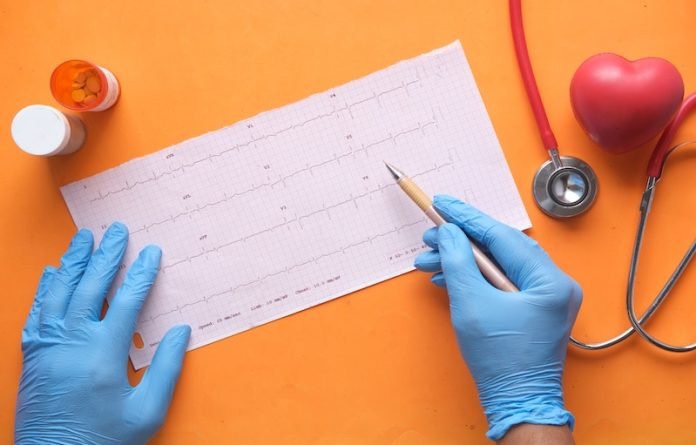
Antibodies are important in fighting off infections in our bodies. But sometimes, the body makes “autoantibodies” that attack our own cells and tissues.
This can cause autoimmune diseases, where the body mistakenly attacks itself. People with autoimmune diseases are more likely to have heart attacks and strokes.
Recently, scientists have found that even healthy people have detectable autoantibodies in their blood.
While most of them will not develop an autoimmune disease, it is not clear whether the autoantibodies might still cause other problems, such as increasing the risk of cardiovascular events.
One autoimmune disease is called antiphospholipid syndrome (APS), where the body makes “antiphospholipid antibodies” that cause dangerous blood clots.
This can increase the risk of heart attacks, strokes, and other problems.
Scientists from Michigan Medicine and UT Southwestern Medical wanted to see if these antiphospholipid antibodies could also be found in healthy people and whether they might predict future cardiovascular events.
The team studied 2,400 healthy individuals from different ethnic backgrounds and found that 15% of them had at least one type of antiphospholipid antibody in their blood.
The individuals were followed for eight years, and the scientists found that testing positive for two specific antiphospholipid antibodies predicted the development of cardiovascular events.
Interestingly, the prevalence of antiphospholipid antibodies was comparable among Black, white, and Hispanic individuals.
This is important because clinical trials for APS often focus on White patients, and it was thought that antiphospholipid antibodies were not as common in other racial and ethnic groups.
The scientists also found that the antiphospholipid antibodies might promote cardiovascular problems by impairing the ability of “good cholesterol” to do its job of clearing out bad types of cholesterol.
In the laboratory, the blood samples with positive antiphospholipid antibody testing more strongly activated cells that line blood vessels, potentially allowing blood clots to form more easily.
While not part of this study, recent research has shown that severe COVID-19 can trigger the production of various antiphospholipid antibodies in some people.
This study’s findings give us another reason to keep an eye on the long-term cardiovascular consequences of COVID-19.
In summary, this study suggests that some antiphospholipid antibodies may increase the risk of cardiovascular events and could inform more personalized approaches to preventing these events.
Identifying who is at the highest risk and getting them on preventative treatment before something bad happens is the ultimate goal.
The Dallas Heart Study is an important study that tracks the health of thousands of people to improve the diagnosis, prevention, and treatment of heart disease.
Heart disease refers to a range of conditions that affect the heart and blood vessels. It is a common and serious health problem that can lead to heart attacks, strokes, and other cardiovascular events.
Some common types of heart disease include:
Coronary artery disease: This occurs when the blood vessels that supply the heart with blood become narrow or blocked, reducing blood flow to the heart.
Heart failure: This happens when the heart is unable to pump enough blood to meet the body’s needs.
Arrhythmias: This refers to abnormal heart rhythms that can cause the heart to beat too fast, too slow, or irregularly.
Valve problems: This occurs when the heart valves do not work properly, leading to blood flow problems.
Risk factors for heart disease include high blood pressure, high cholesterol, smoking, diabetes, family history, obesity, and a sedentary lifestyle.
Preventing heart disease involves maintaining a healthy lifestyle, such as exercising regularly, eating a healthy diet, managing stress, avoiding smoking and excessive alcohol consumption, and taking medications as prescribed by a doctor.
If you care about heart health, please read studies about the best time to take vitamins to prevent heart disease, and flu and COVID vaccines may increase heart disease risk.
For more information about heart health, please see recent studies about how to lower heart disease risk if you have diabetes, and results showing how to live with heart failure.
The study was conducted by Ray Zuo et al and published in JAMA Network.
Copyright © 2023 Knowridge Science Report. All rights reserved.



